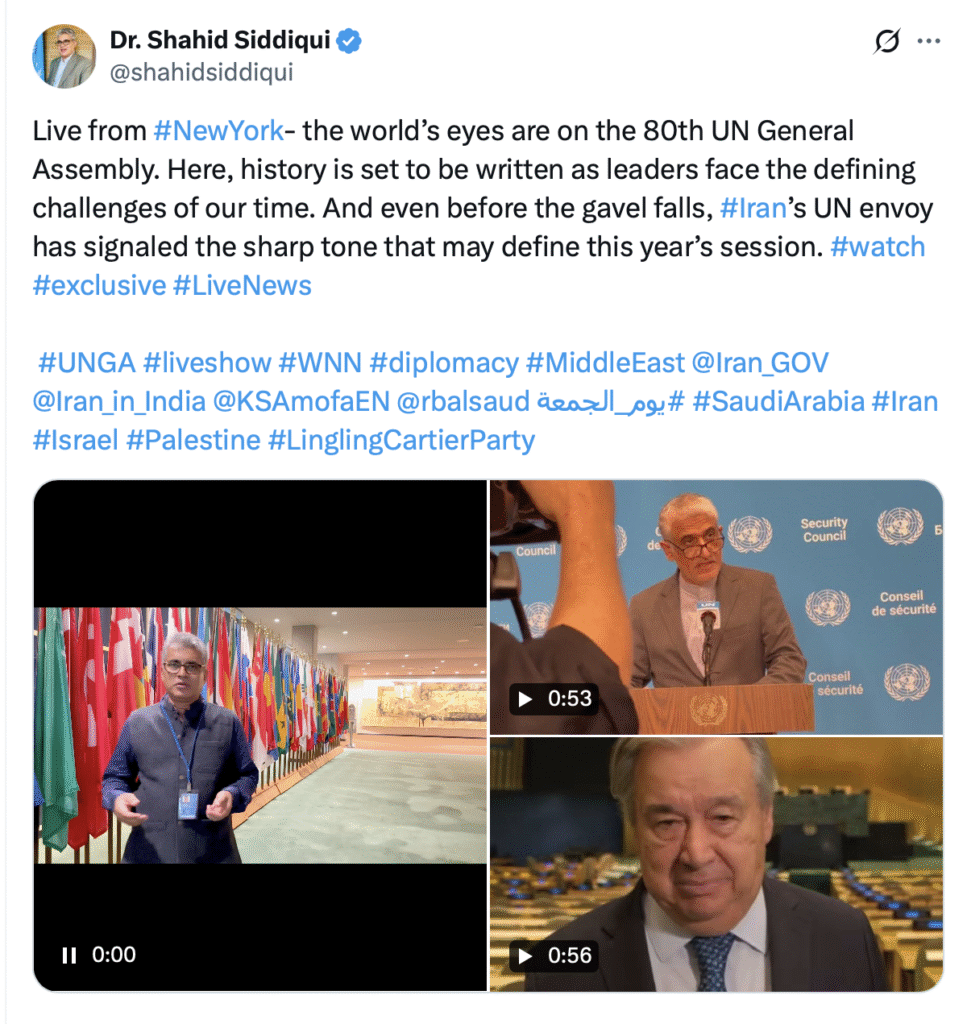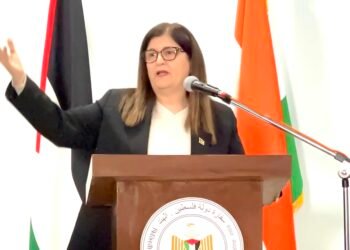LONDON/ NEW YORK: In a landmark policy shift, British Prime Minister Keir Starmer confirmed Sunday that the United Kingdom will formally recognize a Palestinian state, joining Canada and Australia in a move that reflects growing Western realignment over the Israeli-Palestinian conflict.
Starmer said the recognition is meant to “revive the hope of peace for the Palestinians and Israelis,” noting that though symbolic, the gesture could help re-ignite momentum toward a two-state solution.
The decision carries strong historical weight. The U.K. once administered Palestine under a League of Nations mandate and issued the 1917 Balfour Declaration, which supported a national home for the Jewish people but left Palestinian national rights unresolved. The current move was foreshadowed in July, when Starmer warned that formal recognition would follow unless Israel agreed to a ceasefire in Gaza, permitted humanitarian access, and took meaningful steps toward peace.
Over 140 nations have already recognized Palestine; more are expected to do so this week at the United Nations General Assembly, including France.
The announcement comes just after U.S. President Donald Trump’s state visit to London, during which he expressed disagreement with Starmer. Israel, which has rejected a two-state framework and criticized recognition efforts, joined Washington in disparaging the move as rewarding terrorism and failing to address deeply divided Palestinian governance between Gaza and the West Bank.
Starmer countered that Hamas will have no role in Palestinian governance so long as it fails to release Israeli hostages taken during the October 7, 2023 attacks.
Iran’s Call to the Security Council
Meanwhile, Iran’s Ambassador to the United Nations, Amir-Saeed Iravani, used a recent UNSC meeting in New York to sharply condemn Israel’s ongoing occupation, expansion of settlements, and what he described as grave violations of international law. He called on the Security Council to treat those actions as breaches of peace, to act under Chapter VII of the UN Charter, and to hold Israel accountable for war crimes and aggression.
Iran’s intervention at the UNSC also set the stage for intensifying debates at the General Assembly, where Tehran is expected to rally support from the Global South and non-aligned countries. Diplomats anticipate fiery exchanges between Western powers, which remain divided on recognition, and blocs such as the Arab League, African Union, and BRICS members, many of whom back Palestinian statehood.
Correcting “Historical Injustice” & Policy Shift
Deputy Prime Minister David Lammy stated that the recognition is intended to preserve the possibility of a two-state solution, amid concerns that growing settlement expansion and conflict are eroding its feasibility.
Palestinian envoy to London, Husam Zomlot, described the policy as “correcting history,” citing Britain’s role from 1917 onward.
“The issue today is ending the denial of our existence that started 108 years ago, in 1917,” he told the BBC.
After decades of insisting recognition must be part of a final peace agreement, the U.K.’s move under Starmer marks a significant policy shift, shaped by what many now see as the two-state option’s declining practicality.
The recognition by the U.K., Australia, and Canada is seen as the most significant challenge yet to U.S.-led diplomacy in the Middle East, and many expect other nations to follow suit at the UN.
Future Implications at the UNGA
The upcoming UN General Assembly sessions are poised to become a critical arena where recognition of Palestine could dominate the agenda. With France signaling a possible announcement, and with over 140 countries already on record, momentum is likely to accelerate toward broader multilateral endorsement.
Diplomatic sources suggest that resolutions backing Palestinian statehood may gain unprecedented majorities, further isolating Israel and the United States. Western allies could face pressure to reconcile internal divisions, as Washington resists while London, Ottawa, and Canberra push recognition forward.
For Palestinians, this could translate into stronger international legitimacy, opening pathways to expanded participation in UN agencies and potentially renewed efforts to secure full UN membership. For Israel, however, it risks deeper diplomatic isolation and mounting scrutiny of settlement policies.
If momentum carries through the General Assembly, analysts believe a cascading effect could unfold: European countries such as Spain, Ireland, and Belgium may follow, while BRICS states could use the recognition wave to bolster calls for reform of global governance and greater multipolarity.
In this shifting diplomatic landscape, the UK’s move is not merely symbolic it may reshape the tone and outcome of UNGA debates, signaling a structural rebalancing of Middle East diplomacy away from exclusive U.S. stewardship and toward a more multipolar consensus.
-WNN, UK with Dr. Shahid Siddiqui in New York; follow via X @shahidsiddiqui


















